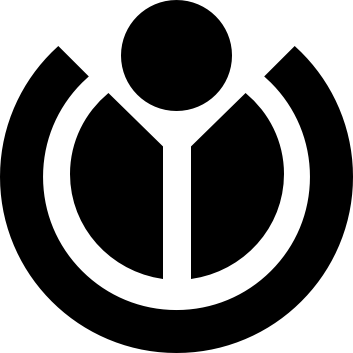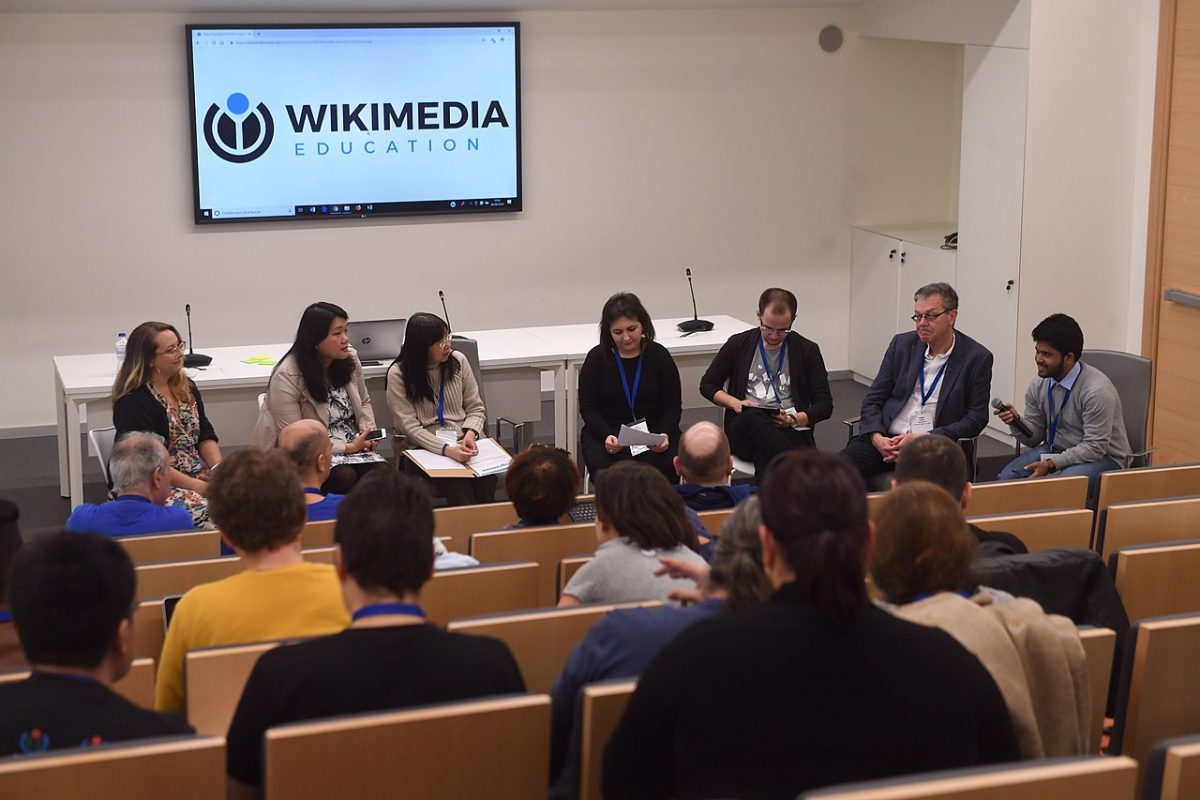
By Jason Evans, National Wikimedian for Wales.
In April 2019 the Basque Wikimedians User Group hosted the first Wikimedia + Education conference in Donostia. Using Wikipedia, and other Wikimedia projects in education is nothing new. There is a vibrant and well established community already engaged in a diverse range of projects from Wiki Clubs in primary schools to accredited Wikipedia based modules in universities. It’s hard to believe then that this is the first official, global, gathering of Wikimedians and educators involved in this work.
In its early days Wikipedia was shunned by educators – pooh-poohed as inconsistent and unreliable. But Wikipedia has long established itself as the go-to for information for millions of people in hundreds of languages, especially our young digital natives. In Wales for example, each time we ask school children, between 80-90% say they often use Wikipedia to help with their school work.
Gradually then, educators are beginning to realise that rather than ignore the gigantic free encyclopaedia in the room, they, with their students, can actually benefit from contributing to Wikipedia. This allows them to teach a whole raft of skills, such as research, digital literacy, collaboration and critical thinking. Contributing to Wikipedia also allows young people to feel like they are contributing something to society. Wikipedia gives their school work real world value. Rather than writing as essay, which is simply marked and filled away in a drawer, students can make a lasting contribution to collective knowledge in their language, which is accessible by anyone, anywhere in the world.
One thing that struck me at this conference was the diversity of participants. Education in Wikipedia is definitely not an English or even Western Centric concept, and often Education project facilitators, be they Wikimedia chapters and groups, universities, cultural institutions or even local governments, are motivated by the desire to increase content in a given language, and to increase the use of that language in the classroom. Activities in the Basque Country and Catalonia, areas keen to protect and promote their own unique language and cultural identity, are good examples.
There was a wide range of activities presented at the conference – With Robin Owain flying the flag for Wales with a presentation on progress at home. He also presented a fantastic video produced by Aaron Morris, Wikipedian in Residence with Menter Mon, highlighting his recent work with Welsh primary schools.
University level education activities were well represented at the conference with Wikipedia based assignments proving increasingly popular in universities around the World. In the UK, Edinburgh University has lead the way with this work and in Ireland Maynooth University has found Wikipedia contribution is hugely popular amongst students. The practice is also well establish in North America and many European countries.
Some Universities, drive participation with the help of a Wikipedian in Residence, or through training librarians. In Serbia universities have appointed Wiki ambassadors and the Catalans have a group of dedicated volunteers who coordinate projects within universities.
In Wales, higher education have been slow to embrace Wikipedia as a teaching tool. Individual lecturers at Swansea and Aberystwyth Universities have begun to explore the possibilities but there is definitely great potential for more engagement. Where we have had increasing success in Wales is in Secondary schools, thanks to the work of Aaron Morris. A number of schools are now teaching students digital competencies and Welsh language skills through Wikipedia editing as part of the Welsh Baccalaureate. Schools have even started forming Wiki Clubs and Primary Schools are also teaching their children about Wikipedia.
Presentations from educators in Argentina, Armenia, France, Catalonia, the Basque Country and others show that Wales is not alone in engaging younger children with Wikipedia editing. Katherine Maher, in her Keynote, pointed out that many of the movements most valuable contributors today began editing when they were thirteen or even younger. I tweeted her quote and had replies from editors who were as young as 8 years old when they made their first Wikipedia edit.
I was 8 when I made my first edit way back in 2007 🙂 https://t.co/pwUsLPlmuy
— ramzy (@muliawanramzy) April 6, 2019
For many teachers, Wikipedia is merely a vehicle for effectively teaching a range of skills, which they would need to teach regardless. But for the Wikimedia movement and those in local governments with a mandate for supporting the growth of a language or culture, teaching Wikipedia can be seen as a long term investment in young people – instilling the notion that they can play an active role in the future of their language by contributing information rather than simply consuming it. This also helps build up the digital presence of a language which is essential for further investment in online infrastructure, by the likes of Microsoft and Google.
Armenian Wiki-clubs have been hugely successful with more than 30 clubs active around the country. Each club has its own trained coordinators and children contribute content they consider interesting, such as cartoons, films and music. Clubs also allow children to contribute through simple tasks to Wiktionary, Commons and other Wikimedia projects – which is a great way of lowering the barriers to entry. Club coordinators are responsible for checking the quality of all contributions of students. With only a small community of editors on the Welsh Wikipedia, the ability to manage and correct large amounts of new content from younger people would definitely need consideration here and the training of new trainers, be they teachers or community leaders and the production of more documentation and guidelines would be essential in replicating any such project at scale.

LiAnna Davis of the Wiki Education Foundation raised another issue which deserves consideration. Increasingly our young people are consuming knowledge through video rather than through reading. This might not be a bad thing, but it’s not something Wikipedia is very good at, especially in smaller languages. Should we be considering the creation of open video content as part of educational projects? At the very least this would complement and add value to a Wikipedia article, so i think it’s definitely something to consider.
From a Welsh perspective the approach of the Basque community is probably the most inspiring and the most relevant to our ambitions for the Welsh language Wikipedia. There are actually at least 10 active education programmes in the Basque Country. Some are small, but valuable programmes such as the work by Mondragon University to rewrite the lead to Wikipedia articles related to citizenship based on perceptions of school children – an exercise they call ‘Politics through Participation’. There is the Txikipedia, children’s Wikipedia project – the only children’s Wikipedia in the world to sit within a languages main Wikipedia, as well as an interesting community project aimed at encouraging locals to write about their local area. However it’s the work of creating content in universities and secondary schools which aligns best with our ambition to raise the standard of the Welsh Wikipedia for all, including the high percentage of young people who use it to find information for school work.

Basque Wikimedians took the school syllabus for primary and secondary schools and, with the help of subject specialists, used it build a list of over 1800 articles which were vital for children’s education. They then partnered with Basque language universities to develop a program for students to create content relevant to secondary school pupils, and they partnered with secondary schools to write content relevant to primary schools.
In Wales the government has a long term strategy to grow the number of Welsh speakers to 1 million by 2050, and Welsh Wikipedia (along with Wikidata) is now officially recognised as an important part of that strategy. Implementing a strategy similar to the Basque Country would help the government achieve targets around digital competencies and the Welsh language in schools, whilst at the same time educating children about the topics being added to Wikipedia, and the output of this work becomes part of the open knowledge ecosystem in the Welsh language, where all Welsh speakers stand to benefit.
As we look to build on recent success in Wales, this conference has provided valuable insight into the incredible work already happening all around the world, from the perspective of educators and Wikipedians.
See more images from the Wikimedia Education conference 2019 on Wikimedia Commons.







